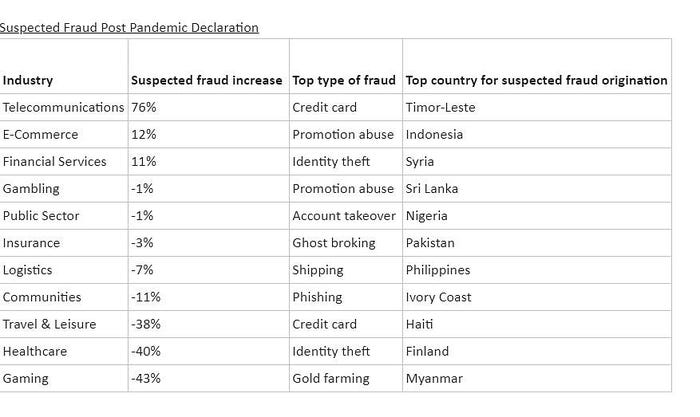TransUnion Outlines COVID-19 Online Fraud Trends: Millennials, Watch Out
The credit bureau's report reveals the industries, schemes and targets in fraud attacks.
May 29, 2020

TransUnion’s quarterly global fraud analysis reveals the most current COVID-19 online fraud trends by industries, schemes and targets. As expected, telecommunications, retail and financial services remain the most targeted industries. More surprisingly, it is millennials – and not boomers – who are most targeted by fraudsters. Another big surprise was the list of cities with the highest percentage of risky transactions: Springfield, Massachusetts; Akron, Ohio; and Louisville, Kentucky.

TransUnion’s Melissa Gaddis
“To be clear, these are the cities that have the highest percentage of suspected online fraud in the U.S. Without the geographical expertise, it would be irresponsible for me to speculate on what makes these cities so attractive,” said Melissa Gaddis, senior director of customer success, Global Fraud & Identity Solutions at TransUnion.
“But what I can say is that typically fraudsters like to operate outside the norm when it comes to geography. These cities for the most part don’t make up the bulk of online transactions, so that’s what might have made them more attractive,” Gaddis added.
On a global scale, TransUnion found the countries with the highest percentage of risky transactions were Yemen, Syria and Kazakhstan.
The COVID-19 Effect on Fraud
The credit agency giant has unique insights from its access to and analysis of billions of online transactions and other fraud indicators for more than 40,000 websites and apps.
The report compares suspected fraudulent transactions from Jan. 11 to March 10, to those from March 11 to April 28. This includes the impacts following the March 11 World Health Organization (WHO) pandemic declaration. Overall, TransUnion said fraudulent digital transactions rose 5% in more than 100 million risky transactions.
Keep up with the latest developments in how the channel is supporting partners and customers during the COVID-19 crisis. |
“It is clear that COVID-19 and the corresponding stay-at-home orders have shifted consumer behavior and accelerated the digital transformation. It’s also clear that there has been a corresponding shift in fraudsters trying to take advantage of certain industries online. Controls must be adapted to ensure organizations in these industries and their consumers stay safe,” said Gaddis.
Some of the COVID-19 online fraud was directed at organizations as the shift to work-from-home employees presented new vulnerabilities. But the attacks were not random.
“What became crystal clear in our data is that online fraudsters during the pandemic have become laser focused in their targeting of specific industries. They are going after the organizations in industries that are more digital-forward, have financial information and payments at the center of their online experience, and whose business has fared relatively well compared to other industries during the pandemic,” Gaddis added.
The Survey by the Numbers
During the week of April 13, TransUnion surveyed more than 9,200 adults in seven countries: the U.S., Canada, Colombia, Hong Kong, India, South Africa and the U.K. Nearly three out of 10 respondents (29%) reported being targets of digital fraud related to COVID-19. Millennials, defined as persons between the ages 26 of 40, were the most targeted, at 34%. Counterintuitively, households with income negatively impacted by the pandemic were more likely (32%) to be targets of COVID-19 online fraud. That compared to 22% of people who were not affected financially.
Sign up for Channel Futures’ new EMEA newsletter, where we feature news and analysis involving companies based in Europe, the Middle East and Africa, as well as those doing business in that region. |
“A common assumption is that fraudsters target older generations who are perceived to be less digitally capable,” said Gaddis. “Our data showed the opposite with younger generations, millennials and Gen Z – those born in or after 1995 – being the most targeted. Adding insult to injury, our survey found millennials are being financially challenged the most during the pandemic.”

“We’d argue that by protecting companies, security providers are also protecting consumers. It goes hand in hand,” Gaddis said.
“Security providers must concentrate on not only stopping fraud before it happens, but also developing tools that provide a friction-right experience for consumers. When we say friction-right, we mean giving consumers the confidence that they know they are being protected, while not making transacting with an online business too cumbersome,” Gaddis added.
Read more about:
MSPsAbout the Author
You May Also Like


